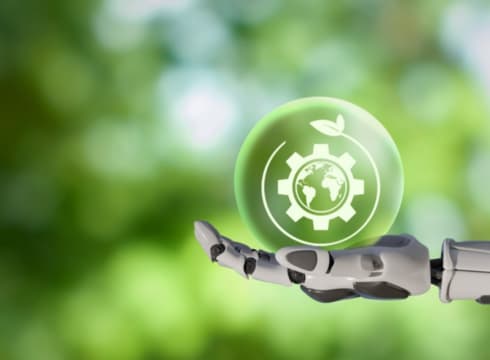The climate tech accelerator program, Low Carbon Earth (LCE), 2023, has been launched in partnership with the United Nations Environment Programme
The first phase of the accelerator is set to begin on August 10, 2023, with a cohort of over 50 startups
The program will also onboard around 30-40 mentors to help the shortlisted climate tech startups learn the business side of things
Inc42 Daily Brief
Stay Ahead With Daily News & Analysis on India’s Tech & Startup Economy
Climate-focussed non-profit organisation Massive Earth Foundation has launched a climate tech accelerator program Low Carbon Earth (LCE), 2023, in partnership with the United Nations Environment Programme (UNEP), to help startups that are solving climate change and pollution problems.
The first phase of the accelerator is set to begin on August 10, 2023, with a cohort of over 50 startups. Following nine weeks of virtual accelerator sessions, around 10-15 startups would be shortlisted and given opportunities to onboard investors.
The Low Carbon Earth accelerator program also aims to create a unique opportunity for the shortlisted startups to showcase their solutions and pitch to investors, potential partners, and industry leaders at a demo day or pitch event, which would conclude at the COP28 Summit organised by the UNFCC in Dubai.
Speaking to Inc42, Shailesh Vickram Singh, director of Massive Earth Foundation, said, “We are looking for startups across Asia who are working in chosen sectors like cooling, microplastic, solar, among others. The idea is to help them in scaling.”
Singh is of the opinion that while it’s easier for most tech startups to find mentorship due to the presence of accelerators, incubator programs, and investors, climate tech founders face difficulties.
“A lot of climate tech startups today keep working in a non-profit way. So, the idea is to make them think about the market side – how they can also build a billion-dollar company,” he said.
The accelerator program will also onboard around 30-40 mentors from four categories – UN officials, investors, entrepreneurs, and industry experts – to help the startups learn the business side of things.
While the Low Carbon Earth accelerator program will onboard startups across stages, it has a special focus on entrepreneurs from marginalised communities and women entrepreneurs. Massive Earth Foundation does not intend to take any equity share in these startups under the accelerator program.
The last date of application for the program is July 31, 2023. However, there might also be a few enrollment after that date under the late application program, said Singh.
Founded in 2017, Massive Earth Foundation aims to promote climate tech innovation and do deep research in this sector. The firm has run several acceleration and incubation programs since its inception, including Agra Innovation lab and Miles Challenge.
With a growing focus on achieving net zero goals and reducing carbon emissions, the climate tech ecosystem has started receiving more attention than ever before.
Recently, Bengaluru-based boutique investment advisory firm CaHa Capital launched a climate tech and climate finance-focussed venture studio, VAIA Climate Studio. The company is looking to create at least four climate tech startups by the end of FY24 and also invest in their seed rounds.
Meanwhile, climate-focussed Indian VC firm Avaana Capital last month raised $70 Mn for the first close of its Avaana Climate and Sustainability Fund to invest largely in three sectors – energy transition and resource management, mobility and supply chains, sustainable agriculture and food systems.
As per a recent report, the global climate tech market is projected to reach a size of $182.54 Bn by 2033, registering a CAGR of 24.5%.
{{#name}}{{name}}{{/name}}{{^name}}-{{/name}}
{{#description}}{{description}}...{{/description}}{{^description}}-{{/description}}
Note: We at Inc42 take our ethics very seriously. More information about it can be found here.


